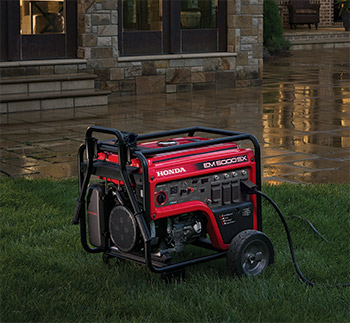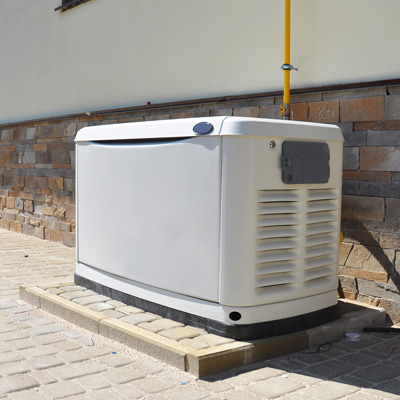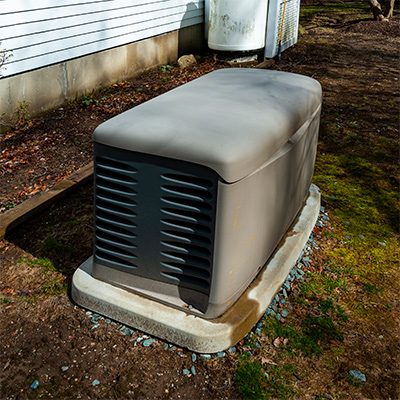
Portable vs standby generators
One of the first decisions many homeowners make when deciding on backup power is whether to use a portable or a home standby generator. There are pros and cons to both options.
Portable Generators Pros
- Much less expensive
- No installation required
- Useful for more than just powering your home
- Take it with you if you move
Portable generators are significantly less expensive than a home standby generator. You can save thousands by opting for a portable generator. This is one of the reasons they are so popular.
Portable generators are much easier to set up. There is no need to pour a cement pad or cover installation costs for a portable generator. The only installation cost would be if you choose to use a transfer switch, which is still significantly less expensive and time consuming. While a site permit may be required for a transfer switch in some areas, it is generally a much easier undertaking than the permits and inspections generally required for a home standby installation.
Because a portable generator can be moved, you can use it for many different applications. For example, the same Honda generator can power your home, tailgate party, and camping trip. And, unlike a home standby unit, you can take a portable generator with you if you move. So you can take your investment wherever life takes you.

Portable Generator Cons
- Does not automatically start
- Refueling is necessary
- May not be able to power everything
Portable generators do not automatically come on when the power comes out. You would need to move the generator outside away from your home, add fuel, start it, and connect it to your home with a transfer switch or extension cords. While this is not difficult to do, some people find it inconvenient.
While Honda generators are fuel efficient, you’ll need to refuel them occasionally for longer outages. Honda generators are gasoline powered, so you’ll want to have a supply of fuel on hand if an outage is anticipated, like a storm. See all our fuel recommendations here.
Finally, because portable generators are smaller than a home standby, they may not be able to power everything in your home. Most homeowners work with an electrician to decide which items are most important – like the refrigerator, furnace, and hot water heater. Using power management can help you power more items with a smaller unit.

Home Standby Pros
- Power comes on automatically
- Refueling is not necessary
- Larger units can power more
The biggest benefit of a home standby unit is it will automatically start when the power goes out. It also typically has a propane or natural gas connection, so there’s no need to refuel. For some homeowners, this convenience outweighs their high cost.
Home Standby generators tend to be larger than a portable generator, so they can power more appliances in your home.

Home Standby Cons
- Much more expensive
- Installation is expensive
- Permanently installed
- May not be a good investment value
- Maintenance contract may be needed
- Can increase your natural gas/propane bill significantly
There are several drawbacks to home standby generators. The biggest is their cost. These generators are significantly more expensive than a portable generator. The installation cost can also be very expensive – often similar to the cost of the generator itself.
The permanent installation is also a negative. Home standby units are only good for powering your home, and if you move, you can’t take them with you. And unfortunately, the value of your home does not typically increase enough to recoup the cost of a home standby generator.
Because the generator requires regular maintenance, you will also want to factor in the cost for a maintenance contract.
You’ll want to keep in mind that because the generator must exercise itself weekly, it will be using a fair amount of natural gas or propane. Generally this is a 20-30 minute period. This also can add up in cost.
For consumers using propane, you’ll also want to consider the amount of fuel usage during a lengthy outage. During winter storms in particular, if both your furnace and your home standby generator are running on propane, it is possible you could run out of fuel – leaving you without heat and power.









